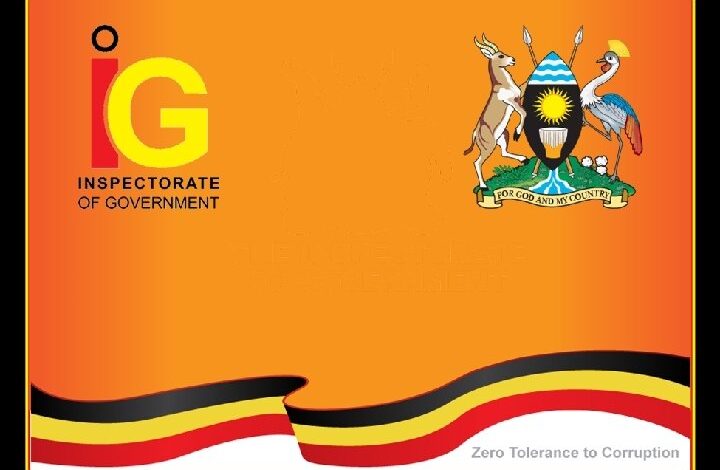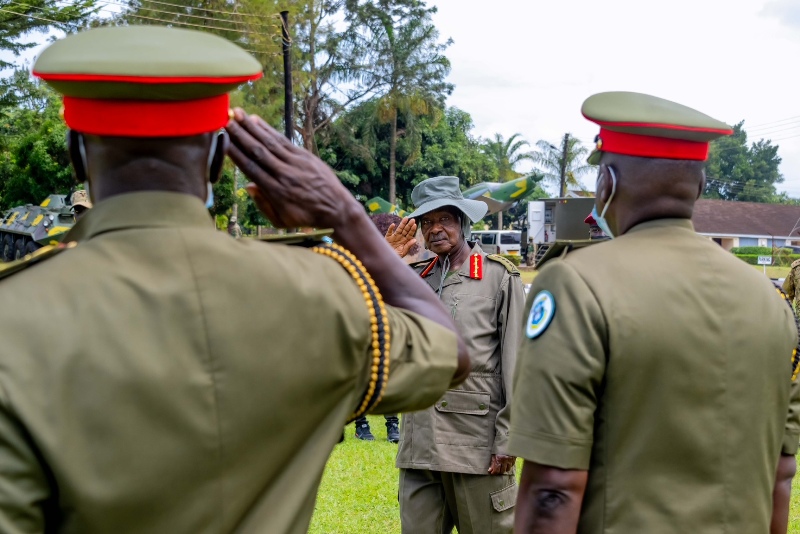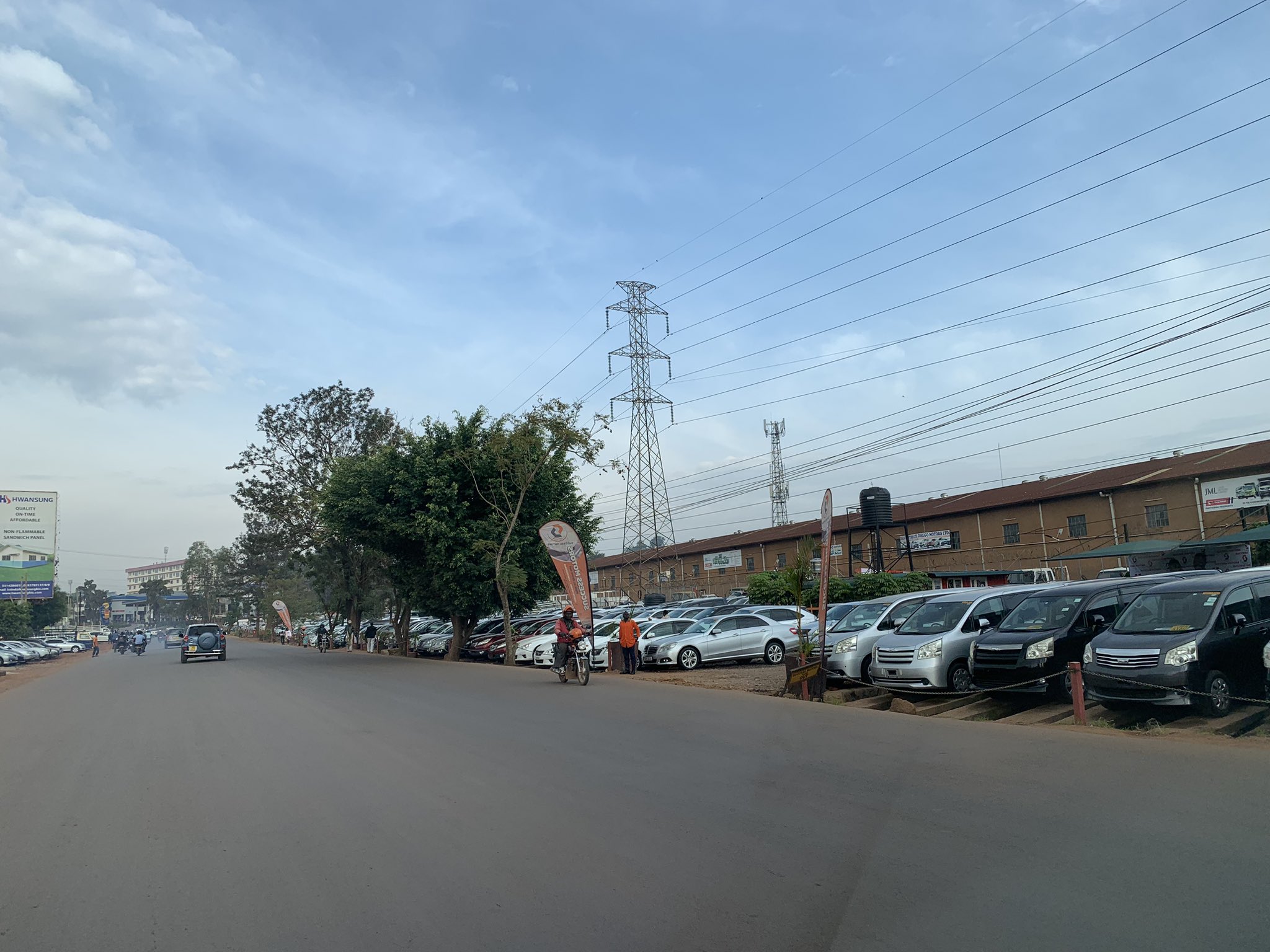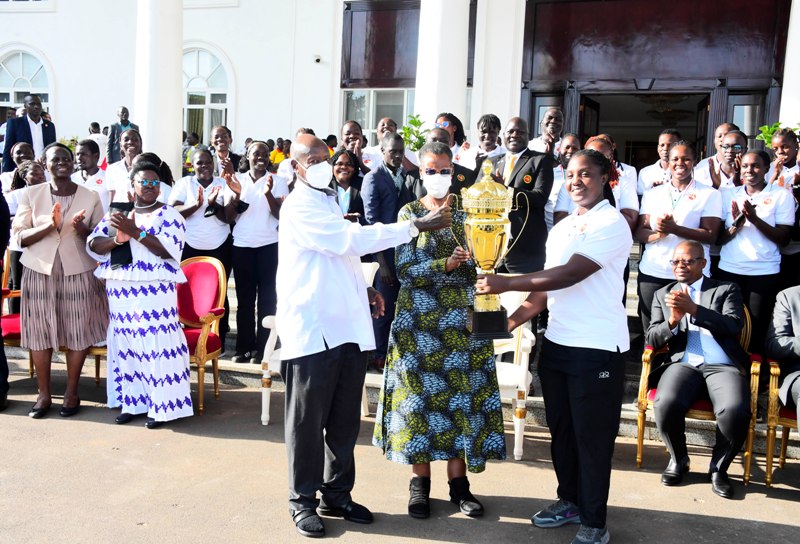38 years of IGG struggling to deliver on anti-corruption fight
Over the years, it became a constitutional body, enshrined under Chapter Thirteen of the 1995 Constitution. Yet, after years of investigations, prosecutions, and public awareness campaigns, corruption in Uganda still thrives.

As the Inspectorate of Government (IG) prepares to commemorate 38 years since its inception, questions continue to hang over the institution’s effectiveness in Uganda’s long-standing battle against corruption.
Despite nearly four decades of operation, the fight against corruption appears to be an uphill struggle, with many doubting whether the IG has made any real strides in eliminating the rampant corruption, that has plagued the country for decades.
The IG was established in 1986 as a department under the Office of the President, with a clear mandate to enforce the rule of law, curb administrative injustices, and fight corruption.
Over the years, it became a constitutional body, enshrined under Chapter Thirteen of the 1995 Constitution. Yet, after years of investigations, prosecutions, and public awareness campaigns, corruption in Uganda still thrives.
Uganda continues to rank poorly on Transparency International’s Corruption Perceptions Index, and there’s no sign of significant improvement.
Although the IG launched a clarion call in 2021, urging Ugandans to join hands in the fight against corruption, the impact of this public appeal has been limited.
The Inspector General of Government (IGG), Beti Kamya, has been vocal about the importance of citizen involvement in the anti-corruption campaign.
“This is a people’s war where everybody, within their respective space, is expected to be involved,” she said. However, despite this rhetoric, corruption remains deeply entrenched in various sectors of the country.
In its 2023/2024 financial year, the IG received 2,377 complaints, a seemingly impressive figure on the surface. However, beneath this number lies the harsh reality that nearly 10% of these cases remain unresolved, and even among those that were investigated, the results have been underwhelming.
Only 852 corruption-related cases were fully investigated, out of which 18 were high-profile. While the IG managed to recommend the recovery of UGX 17 billion, the sheer scale of corruption in Uganda dwarfs this figure.
Moreover, most corrupt officials continue to operate with impunity, either manipulating the system or facing lenient consequences.
When it comes to prosecutions, the IGG’s office faces another set of challenges. The IG prosecuted 55 cases during the past year, yet almost half ended without convictions, raising doubts about the IG’s capacity to secure justice for Ugandans.
The conviction rate stands at just 47.3%, and many cases are withdrawn or dismissed due to insufficient evidence or out-of-court settlements.
Of the 55 cases, 18 were withdrawn, while two were outright dismissed, raising concerns about the institution’s ability to secure convictions and deter future corruption.
Even in its effort to enforce the Leadership Code of Conduct, which requires public officials to declare their assets, the IG has faced resistance. Out of an expected 32,617 leaders, only 26,541 had declared their assets by the end of the financial year, representing a compliance rate of just 81.3%.
The IGG expressed frustration over these results, saying, “The process is ongoing, but public officials must be held accountable for failure to declare their assets. Without accountability, corruption will continue to flourish.”
This frustration is shared by many Ugandans who feel that despite years of awareness campaigns and outreach, the IG has made little headway in its efforts to hold corrupt leaders accountable.
The IG has conducted a range of public engagement activities, including 71 radio talk shows, 23 TV programs, and the development of information materials aimed at raising awareness.
But these campaigns, while informative, have yet to inspire significant action from the public or bring about systemic changes within the government.
The IG’s partnership with other anti-corruption bodies through the Inter-Agency Forum (IAF) was intended to promote better coordination and transparency in fighting corruption.
However, even with this collaboration, the IG continues to face significant obstacles. “We have created synergies to share information, but overlapping mandates and lack of resources continue to hinder our efforts,” the IGG lamented.
While the forum was meant to ensure better resource utilization and prevent the duplication of efforts, these lofty goals have yet to be realized in practice.
Even on the international stage, where the IG is part of various bodies such as the Eastern Africa Association of Anti-Corruption Authorities and the African Union Advisory Board Against Corruption, the institution struggles to translate these collaborations into meaningful victories on the ground.
While the IG boasts of its international ties, there is little evidence to show that these relationships have resulted in substantial gains for Uganda’s anti-corruption fight.
As the IG prepares for the upcoming IG Day, which will take place at the Railway Grounds along Kampala Road on 18th September, citizens are being urged to come and interact with the IGG and other senior officials.
The event is positioned as an opportunity for Ugandans to provide feedback and report cases of corruption directly. However, many citizens remain skeptical, wondering whether this interaction will lead to real change or if it will be yet another hollow promise.
As the IGG herself said, “We cannot successfully eliminate corruption without the support of the citizens since they have the information about the corrupt.”
Yet, despite such statements, Ugandans have little reason to believe that the fight against corruption is making significant progress. After 38 years, the IG’s efforts may have led to some victories, but corruption continues to thrive in Uganda, raising the question: is the IG fighting a losing battle?
With its anniversary fast approaching, the IG faces a critical moment in its history. The institution must reflect on its journey and reassess its strategies if it hopes to turn the tide against corruption.
Otherwise, this year’s commemoration may serve as a stark reminder of the missed opportunities and unfulfilled promises in Uganda’s fight against corruption.







